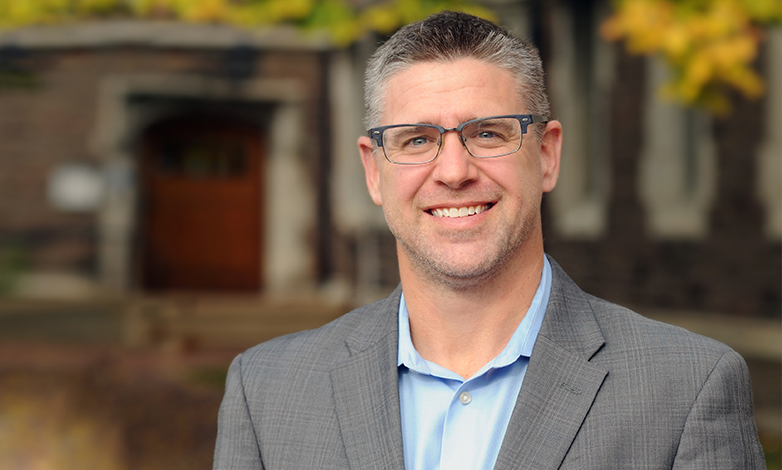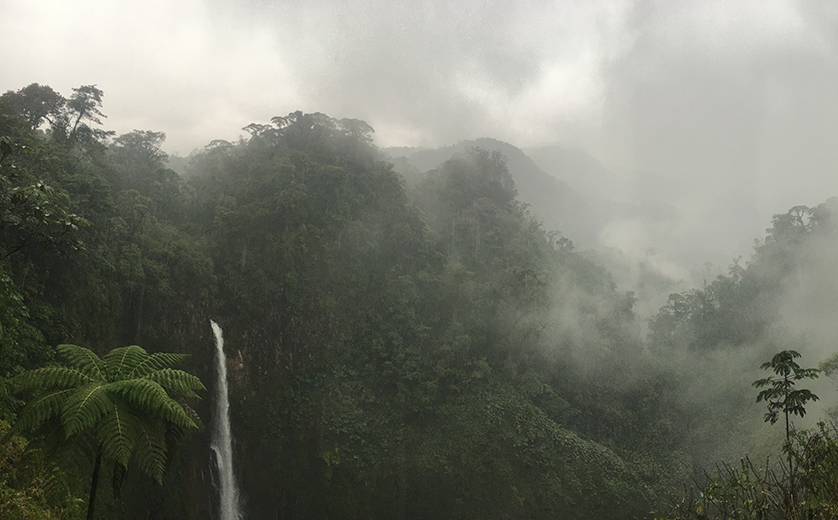Twelve Brown School students will be traveling to a tiny Central American country in June to learn about sustainable farming, fishing and energy practices being pioneered there. The two-week class, Sustainability, Development, and Health: Costa Rica, will focus on how those practices might be adapted for use in the U.S. and other nations.
It’s an exercise in transdisciplinary problem-solving to tackle what may be the biggest problem of all: the exhaustion of the planet’s resources.
“This will quickly become the most important public health issue of our time,” said Joe Steensma, professor of practice at the Brown School, who is leading the class. “What the course explores is the positive relationship between sustainability and public health.”
The Brown School is partnering on the course with Earth University, a 25-year-old institute in Costa Rica where students study tropical agriculture and develop methods that can be sustained for hundreds of years to feed the world’s people.
Brown School students from both the MSW and MPH programs will work side by side with the Earth University students on the university’s farm. They’ll also tour Costa Rica’s hydroelectric and geothermal plants, which help the nation meet 98 percent of its energy needs with renewable sources; visit sustainable fisheries; and examine the cultural and political environment that has contributed to the nation’s sustainability successes.

Registration for the class filled up in a day, Steensma said, and students selected from the applicant pool represent six nations. Steensma hopes that future classes can expand the number of students and include those from other schools at Washington University. Phil Valko, the university’s assistant vice chancellor for sustainability, is co-teaching the class, along with faculty from Earth University.
Steensma’s interest in Costa Rica began as a place to indulge his passion for bird-watching. (He is the author of a soon-to-be published book: “Birds of the Caribbean Slope.”) But his attention soon turned to the nation’s people.
“I started noticing people lived more simply, and they were happier and healthier,” he said. Although the nation is relatively poor by conventional monetary standards such as gross domestic product per capita, it has one of the longest life expectancies in the Western Hemisphere and is regularly rated as one of the world’s happiest nations.
“We’re going to see how they’re doing it and whether we can take practices back to our communities,” Steensma said. “How can we learn from them to be happier and healthier?”
Key to the nation’s success has been recognizing the value of its most valuable natural resources; flora and fauna. Land conservation and encouraging sustainable forestry rather than cutting down trees for agriculture has helped develop eco-tourism as a major economic asset in a country that has fewer square miles than West Virginia. The nation’s market economy means that individuals benefit financially from the natural assets, as well as the nation as a whole. Students also will be looking at how entrepreneurship—another specialty of Steensma’s—can make a difference.
He hopes the experience will be particularly valuable for the students who are native to developing countries in Africa and Asia. “I want students to come away with knowledge they can share with their communities and put into their practices. If they can teach others how to profitably produce goods and services in a sustainable manner, we may make a dent in the huge problem that is over-exploitation.”
It’s a lesson the United States could profit from, too.
“We’re pulling resources from the earth at a rate two times what is sustainable, probably more,” Steensma said. “The poorest and the least represented will bear the cost. I am not sure that it is reversible, but if it’s reversible, we’ve got to get on it.”
